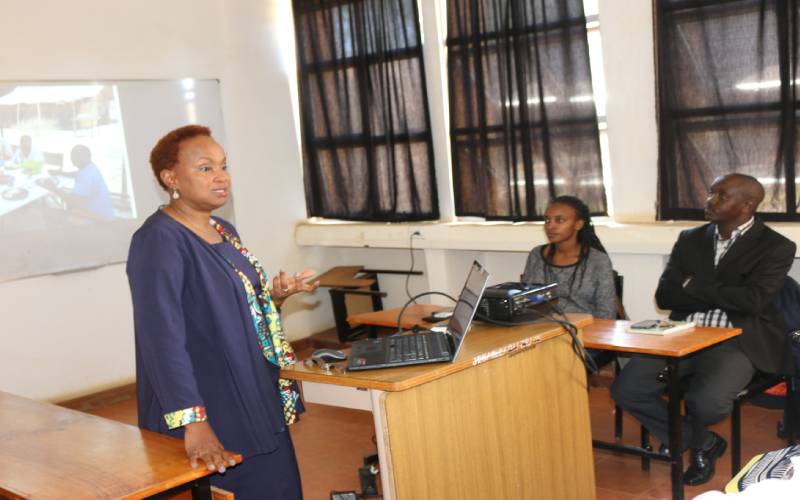×
The Standard e-Paper
Stay Informed, Even Offline

Prof Muigai giving a public lecture. [Courtesy]
In our day to day life, we face an array of holdups especially when we are expected to make certain ethical decisions. Scientists and researchers are not an exception. Although sometimes it is difficult to classify the difference between ethics and morality, Prof. Anne Muigai, a Professor of Genetics at Jomo Kenyatta University of Agriculture and Technology, said it is paramount for researchers to uphold ethics and morals in the course of their work.